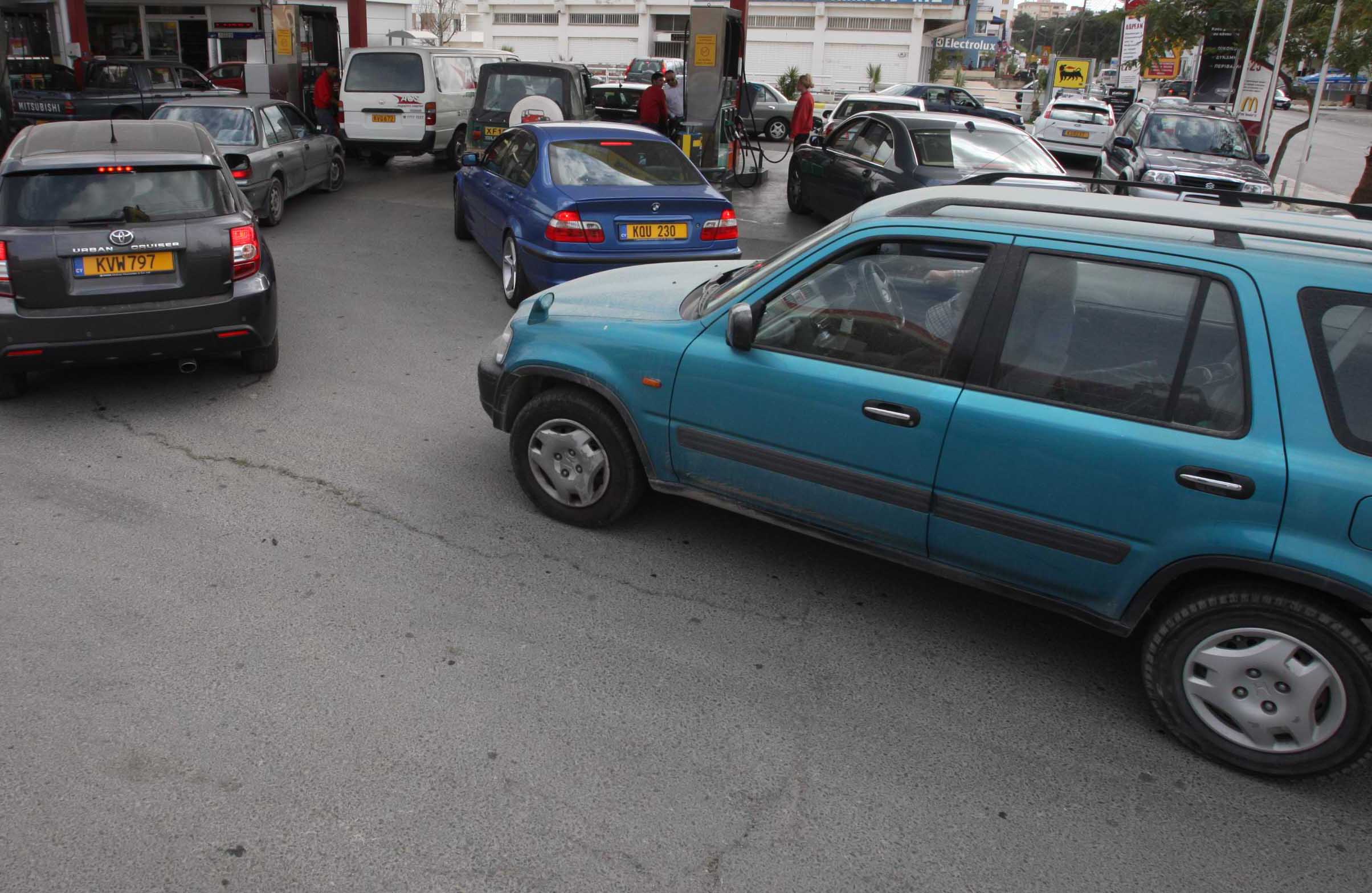The island’s disgruntled petrol station owners on Wednesday urged the government to intervene over the issue of consumers buying fuel from the occupied territories in the north, and are now seeking compensation for their losses.
They also did not rule out the possibility of taking dynamic measures, according to a statement issued by the pancyprian petrol station owners association.
According to the group’s interpretation of the Green Line Regulation, the association’s service stations are allowed to officially address the competent bodies of the European Commission and organisations such as Frontex directly, since the state “seems to be indifferent to the problem, unable to intervene and unable to conceal the reality of the problem from the European Commission,” and stated in its press release that a full report has been forwarded to the competent bodies at an EU level.
The core of their grievance is that the public is spending millions of euros each month in the north filling up on cheaper fuel – and the state is doing nothing to stop it.
The association’s lawyer, Alexandros Clerides, has argued that the state is not abiding by the Green Line Regulation – which sets out which goods and in what quantities may be traded between the two communities.
Clerides argues that buying petrol in the north is illegal as it is not listed as a permitted product in the regulation.
The government has previously been accused of looking the other way, wary of dealing with what could be a politically sensitive issue.
Christodoulou emphasised that there are many ways of checking the content of a vehicle’s fuel which will show whether it was purchased in the north, but that the customs department is not carrying out such checks.
To prove their point, the petrol station owners cited a study according to which, the state, through its own institutions, has undertaken to supervise the points that exist as roadblocks, but which the association argues “seems incapable of exercising real control of people and vehicles passing through these roadblocks”.
The group added that the government “has agreed to apply the articles of the Green Line Regulation and any supply of fuel from the occupied areas to the free areas is prohibited, but there is no strict application of the articles of the Green Line Regulation nor strict controls by the Republic of Cyprus institutions at the barricades”.
They went on to accuse the government of ignoring the problem, the regulation provision for immediate intervention and remedy, and also refusing to officially inform the European Commission about it.
But those calling for the checks have themselves come in for criticism, with many questioning how feasible such inspections would be. There are other practical concerns, such as whether Turkish Cypriots would be allowed to drive their cars across with fuel purchased in north.
The row has been rumbling on for years but a weakened lira and lower taxes on fuel in the north – compounded by the rising cost of living – has seen a surge in demand from those in the government-controlled areas for cheaper petrol. That has led to major queues at the various checkpoints to the north and at petrol stations over there.
“The Green Line Regulation expressly provides that in the event of serious disruption to a particular sector of the economy of the Republic of Cyprus caused by the extensive use of the facilities by persons crossing the line, the Republic of Cyprus may stop this unjustified abuse until it can make different arrangements, and it obviously does not do so,” the group said, noting that service stations in the south have been affected by the present situation.
Meanwhile, petrol station owners stressed that their businesses are facing a problem of viability since the phenomenon of buying fuel from the north has reached huge proportions. “This is confirmed by the queues of cars at the roadblocks daily and on a continuous basis. In particular, both the number of transits have quadrupled from 220,604 in 2021 and the number of vehicle transits from 194,859 in 2021, until August 2022 reached 838,209 and 533,197 respectively,” they added.
Head of the association of petrol station owners Stefanos Stefanou has previously told the Cyprus Mail that some stations have seen a reduction of up to 30 per cent in their sales.
“The above allows the Association’s service stations to claim and demand as directly affected by the Republic of Cyprus itself to intervene immediately with decisive measures to stop and not continue this situation as well as to compensate them for all the damage they have suffered to date,” the press release continued.
In June 2018, the customs department said it would step up checks on vehicles at crossing points and seize fuel brought from the north, but the campaign has since seemingly fizzled out.
At the time, the department said that it is within their powers to stop and search vehicles and take samples for testing.
The department warned that vehicles could even be confiscated.







Click here to change your cookie preferences